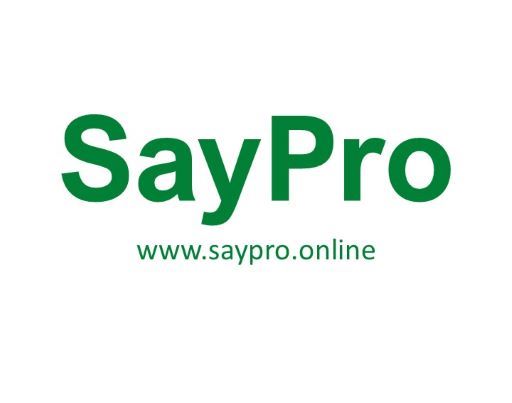References are an important part of the government job application process, as they provide the hiring agency with an external verification of your qualifications, work ethic, and skills. They can significantly support your application and demonstrate your credibility as a candidate. Below is a breakdown of how to handle references for government job applications, including what information to provide and the types of references that are typically required.
1. Who Should Be Your References?
When applying for a government job, it is important to choose professional or academic references who can vouch for your qualifications, experience, and character. Here are some types of references you may want to consider:
Professional References:
- Current or Former Supervisors: They can speak about your job performance, work ethic, and specific accomplishments during your tenure.
- Colleagues or Team Members: If you have worked collaboratively on significant projects, they can speak to your teamwork skills, problem-solving abilities, and contributions to the workplace.
- Managers or Directors: Individuals in higher-level positions who have overseen your work and understand your contributions to the organization.
Academic References:
- Professors or Advisors: If you’re a recent graduate or have limited professional experience, a professor, academic advisor, or mentor can vouch for your skills, academic achievements, and work ethic.
- Thesis Advisors or Research Supervisors: If your government job application is related to research or academics, an advisor who supervised your thesis or research work can serve as a strong reference.
Other References:
- Clients: For positions where you have worked as a consultant or freelancer, a client who can speak to the value you provided and your professionalism may be appropriate.
- Volunteer Supervisors: If you have done substantial volunteer work, a supervisor from that volunteer organization could act as a reference, especially if the work is relevant to the position you’re applying for.
2. Information to Provide for References
Government applications often require you to submit specific information for each reference. Here’s what you’ll typically need to include for each reference:
Basic Contact Information:
- Full Name of the Reference
- Title or Position (e.g., Supervisor, Professor, Director)
- Organization/Institution Name
- Work Address (company or school address, if applicable)
- Phone Number (preferably a work number)
- Email Address (professional or institutional email)
- Relationship to You (e.g., supervisor, colleague, academic advisor)
- Years Known (how long and in what capacity you’ve worked with the reference)
Example:
- Reference Name: Dr. Jane Smith
- Position: Director of Research
- Organization: ABC University
- Phone Number: (555) 123-4567
- Email: j.smith@abcuniversity.edu
- Relationship: Former Thesis Advisor
- Years Known: 3 years
3. How Many References Do You Need?
The number of references you should provide depends on the specific requirements listed in the job posting. However, it’s common for government job applications to ask for three to five references.
Some tips:
- Provide a mix of references that can speak to different aspects of your qualifications, such as your professional skills, work ethic, and academic achievements.
- Review the application requirements carefully to ensure you provide the correct number of references and whether they require specific types of references (e.g., professional only, academic, or a mix).
4. Permission and Communication with References
Before you submit your references, it’s crucial to get permission from the individuals you’re listing. Contact your references ahead of time to ensure they are willing and available to provide a positive recommendation.
Tips for communicating with references:
- Inform them about the job: Let your references know about the specific government job you’re applying for and why you’re interested in it. This will help them tailor their reference to the position.
- Provide details about your qualifications: Share your resume, job description, and any specific skills or accomplishments that you’d like them to highlight.
- Give them a heads-up: If a government agency reaches out to them, they will be prepared to respond promptly.
- Be courteous and thankful: Always express your gratitude to your references for their support and time.
5. Professionalism of Your References
Government agencies value professionalism in your references, so it’s important that the individuals you choose maintain a high level of professionalism and familiarity with your qualifications. If possible, avoid using personal references unless explicitly requested by the application instructions.
Make sure your references:
- Have up-to-date contact information.
- Are familiar with your career and accomplishments.
- Can speak authoritatively about your skills and experiences relevant to the job.
6. Common Pitfalls to Avoid
Here are some common mistakes to avoid when submitting references for government job applications:
- Not Getting Permission: Never assume someone will provide a reference. Always ask for their consent first.
- Using Personal References: Personal references (friends or family) are usually not appropriate unless specifically requested. Always opt for professional or academic references.
- Lack of Preparation: Failing to provide references with the context of the position or your recent achievements can result in vague or unhelpful references.
- Not Updating Information: Always ensure the contact information for your references is up-to-date. Outdated or incorrect information can delay the hiring process.
Conclusion
Having strong, professional references can significantly boost your government job application. By carefully selecting appropriate individuals, providing them with all the necessary information, and keeping communication open, you ensure that your references can give the best possible support to your candidacy.
Remember to:
- Choose relevant references (professional or academic).
- Provide complete and accurate contact details.
- Ensure permission and preparation from each reference.
- Follow the specific instructions provided in the application regarding reference submissions.
